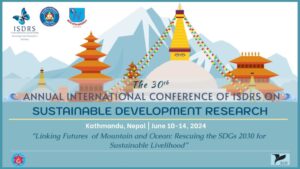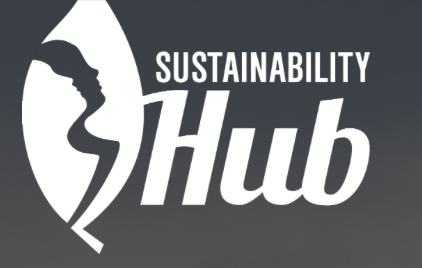Goals And Objectives
In the monitoring, assessment and reporting of sustainability one of the main ends is to support decision-making, organizational learning and policy processes, thus improving the management of natural and human systems and achieving transformation towards sustainable outcomes. In addition, to supporting policy development, organizational learning, and management strategies, sustainability evaluation, reporting and governance initiatives should integrate and reflect the uncertainty values of non-linear complex processes, where the limits are often unknown. Despite the diversity of methods and tools to assess and report sustainability, indicators are one of the approaches most used, playing a central role, in particular to support management systems and communicate sustainability performance to stakeholders.
Indicators and related approaches have long been used to assess sustainability, therefore its useful to compare, evaluate and innovate diverse indicator approaches and their practice. Researchers in this area face challenges, such as: How to develop indicator models that take into account complexity and long term of sustainable development? What are effective models for indicators communication? How useful are indicators for the society and for effective stakeholder use? How effective have indicators been at progressing sustainability/sustainable development? How do we assess the impact of sustainability indicator assessments? How should indicators be tailored to produce real impact on decision-making and policy processes? What are the strengths/benefits, drawbacks, opportunities and threats/barriers of using indicators? How resilient is the indicator concept and what innovations can be expected? The sustainable development goal posts keep changing, are we as indicator researchers keeping abreast of change? and if so, how?
Indicators should be flexible enough to include emerging issues and deal with overlooked aspects of sustainability, particularly those involving global changes and threats, goal and target/limit uncertainty, address different scales, sustainability ethics, cultural, aesthetics and general non-material values, blurred distinction between peacetime and wartime, collaborative learning, voluntary monitoring and crowd sourcing. They should also be able to reflect the new and old limits of natural-human systems.
The main goal of this track is to discuss new approaches, concepts, methods and frameworks or case study applications that deal with assessing and reporting sustainability through indicator initiatives. Therefore, we invite contributions of both theoretical and empirical papers.
Contributions from the following areas are sought-after
- The performance of sustainability indicators; the role of meta-evaluation approaches;
- The effective societal impacts of sustainability indicators;
- Questioning indicator development and selection approaches: improve the utility, accuracy, validity, feasibility and redundancy;
- Indicators of and for organizational learning;
- The role of sustainability indicators in assessing impact/follow-up processes of polices, plans and projects;
- New indicator approaches involved in estimating the physical, ecological and social limits of sustainability issues;
- The reliability/uncertainty of sustainability measurements and estimates provided by indicators;
- The implications of easy, friendly/simplistic indicator approach to assess and communicate sustainability limits;
- Indicator approaches for assessment and reporting of new sustainability challenges and non-traditional aspects;
- Scale effects on sustainability assessments and carrying capacity evaluations at local, regional, national and transnational levels and their relationships;
- Methods to define the thematic scope of sustainability assessment and reporting;
- How stakeholders could be engaged to assess and report sustainability issues for incorporation into policy: volunteer collaborative contributions to data selection; gathering and assessment; and crowd sourcing.
- Integration of Sustainable Development Goals (SDG) in indicator related frameworks (e.g. ISO 14000, ISO 14031, GRI, System-B, Ecolabels).
Length And Content Of The Proposed Abstract To The Track
Each proposed abstract (in connection to an area pointed out above) of between 300 and 500 words (including all aspects),
- shall be best organized (without headlines) along usual structures (e.g. intro/method/findings or results/ discussion/conclusions)
- does not need to, but can include references
- shall provide in a final section
a. to which SDG(s) and SDG-target(s) their proposed abstract especially relate to (e.g. “SDG+Target: 14.1.”)
b. a brief indication how the proposed contribution relates to the topic of the Conference
Abstracts which do not outline points 3.a.) AND 3.b.) might be considered less relevant in the review.
Potential Publication Channels
With regard to potential publications, depending on the number and quality of contributions, diverse publication opportunities will be envisaged.
News
At the 24th annual conference in Messina the new handbook was presented, with contributions of all well known scholars in this field. It is an impressive collection of contemporary thinking and practices in measuring 'sustainability': Bell, S. and S. Morse (2018) Routledge Handbook of Sustainability Indicators. You can buy this online with discount.
Next Conference: Track 1c
Keep up to date with developments of ISDRS 2024 Track 1c here
“Linking Futures of Mountain and Ocean: Rescuing the SDGs 2030 for Sustainable Livelihood“
Related UN-SDGs
Who are we?
email: tabr@fct.unl.pt
email: marlen.arnold@wirtschaft.tu-chemnitz.de
Past Conference
Nanjing, China 2019
Chairs Tomas B Ramos, Shobhana Madhavan
The session consisted of a collection of presentations which combined comparative analysis, case-studies and analysis of specific themes and subjects in the literature on the assessment of sustainable development. Using the methodological frameworks of circular flow, and life cycle analysis two themes were explored. The first was a critical evaluation of food waste management and the second, set out the criteria for assessing the performance of central public sector organisation drawing on the experience of developing the Cresting Project. Both used empirical data from the EU. In another comparative study, using systematic data sets on cities, an analytical model was used to help formulate a set of criteria for comparing cities in Europe and China
Other analytical frameworks included a dynamic DPSIR framework and SAF for sustainable development assessment of EIPs in China. Continuing the theme of sustainable development assessment criteria SHARE IT explored the challenges and opportunities in co-designing a framework for urban food sharing initiatives.
The environmental problem surrounding the coal chemical industry in China was presented in terms of intensive carbon dioxide emissions from this industry. The structure of the industry and its linkages with China’s industrialisation strategy highlighted the dilemmas of the growth and development of the chemical coal industry and environmental concerns surrounding the coal industry in general. Fittingly, the session also included the subject of de-carbonisation. Drawing on the experience of Portugal the study of autonomous vehicles analysed the comparative merits of individual versus shared vehicles in the transport sector.
This session on assessing sustainability contained a valuable set of presentations augmenting the contents of other tracks. All the scholars demonstrated a good understanding of the developments in the literature which focus on the criteria for assessing sustainability and have applied a selection of these to a variety of situations. The application of the criteria to wide-ranging empirical problems in future, and the replication of the methods used in the studies will help create a robust analytical framework for assessing sustainable development.
Knowledges Resources
State of the Art:
Recommended Sources:
- Useful information at UN Sustainable Development Solutions Network: TReNDS: Data and Statistics for Sustainable Development
Routledge & Earthscans' Sustainability Hub
Find useful essays, free books and articles, case studies and more at our partner's website:
LinkedIn Discussions in our Topic Group 1c
Recent discourses on the ISDRS LinkedIn discussion group:
January 2017 Marina Bonser posted: The Nature of the World's Integration and a Tool for the Measurement of Sustainability

